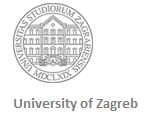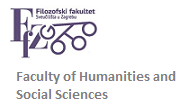Course title: Pragmatics
Instructors: Dr. Mateusz-Milan Stanojević; Dr. Marina Grubišić
ECTS credits: 5
Language: English
Semester: 3rd (winter) term of graduate studies
Status: elective
Form of Instruction: 1 lecture + 2 seminars per week
Examination: written
Course description: This course deals with issues in pragmatics, particularly locution, various types of communicational interaction, speech acts, text functions, deixis and the relationship between pragmatics, semantics and syntax. Some areas are illustrated with examples of recent research in pragmatics. Particular emphasis is given to student participation and finding everyday examples of pragmatic phenomena.
Objectives: The aim of this course is to enable students to acquire the basic pragmalinguistic notions on the theoretical and practical level. Upon the completion of the course, the students will be able to read pragmatic research, will be able to set up basic pragmatic research and will be able to recognize a variety of pragmatic phenomena in everyday communication, which can serve as the basis of reflection on their own communicative skills.
Literature:
Compulsory:
– Huang, Yan. 2007. Pragmatics. Oxford, New York: Oxford University Press.
– Cutting, J. 2008. Pragmatics and Discourse: A Resource Book for Students. 2nd ed. London and New York: Routledge.
Additional:
– Austin, J.L. (1962) How to Do Things with Words, Cambridge, Massachusetts
– Levinson, Stephen C. 1983. Pragmatics. Cambridge, New York, Melbourne: Cambridge University Press.
– Ivanetić, N. (1994) Govorni činovi, Zavod za lingvistiku, Zagreb
– Searle, J.R. (1969) Speech Acts. An Essay in the Philosophy of Language, Cambridge
| Week | Topic |
| 1 | Introduction, syllabus, definition of pragmatics |
| 2 | Functions of language. The goals of translation. |
| 3 | Context and background knowledge: general issues. Cultural differences and translation: examples. |
| 4 | Context and background knowledge in written and spoken texts: presupposition. A cultural view of presupposition in translation. |
| 5 | Context and background knowledge: cohesion and coherence. Manipulating cohesion and coherence for pragmatic effect. |
| 6 | Context and background knowledge: deixis. Social deixis and the T/V distinction in Croatian and English. Translational issues. |
| 7 | Politeness. Positive and negative face. Differences between Croatian and English. Translational issues. |
| 8 | Revision |
| 9 | Speech acts: background. Felicity conditions. Possible consequences for translation. |
| 10 | Speech acts and society. A cross-cultural view: finding differences between English and Croatian. |
| 11 | The cooperative principle: background. Theory and examples of maxims. Flouting and violating maxims. |
| 12 | The cooperative principle: examples and their translation. |
| 13 | Textual differences: achieving pragmatic effect in different types of text. Pragmatic effect and functions of language: recognition and translation. Examples, discussion, problems. |
| 14 | Discourse analysis, pragmatics and culture. The translator as a cultural mediator. |
| 15 | Revision. |


